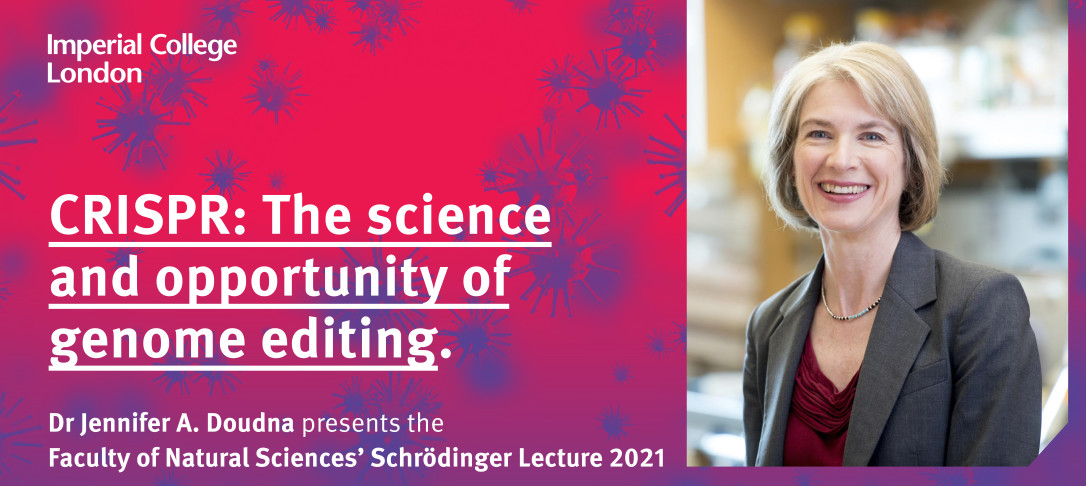
CRISPR: The Science and Opportunity of Genome Editing
Jennifer A. Doudna, Innovative Genomics Institute @ University of California Berkeley & UCSF/Gladstone Institutes; Howard Hughes Medical Institute
Re-watch the lecture on our YouTube channel
Fundamental research to understand how bacteria fight viral infections uncovered the function of CRISPR-Cas programmable proteins that detect and cut specific DNA or RNA sequences. I will discuss current research to develop and deploy genome editing molecules for biomedical and other applications. I will also discuss the development of CRISPR-based diagnostics technology to address the current pandemic and improve future preparedness.
Biography
Dr. Jennifer A. Doudna is the Li Ka Shing Chancellor’s Chair and a Professor in the Departments of Chemistry and of Molecular and Cell Biology at the University of California, Berkeley. Her groundbreaking development of CRISPR-Cas9 as a genome-engineering technology, with collaborator Emmanuelle Charpentier, earned the two the 2020 Nobel Prize in Chemistry and forever changed the course of human and agricultural genomics research.
This powerful technology enables scientists to change DNA — the code of life — with a precision only dreamed of just a few years ago. Labs worldwide have re-directed the course of their research programs to incorporate this new tool, creating a CRISPR revolution with huge implications across biology and medicine.
In addition to her scientific achievements, Doudna is a leader in public discussion of the ethical implications of genome editing for human biology and societies, and advocates for thoughtful approaches to the development of policies around the safe use of CRISPR technology.
Doudna is an investigator with the Howard Hughes Medical Institute, senior investigator at Gladstone Institutes, and the President of the Innovative Genomics Institute. She co-founded and serves on the advisory panel of several companies that use CRISPR technology in unique ways.
She is a member of the National Academy of Sciences, the National Academy of Medicine, the National Academy of Inventors, and the American Academy of Arts and Sciences. Doudna is also a Foreign Member of the Royal Society and has received numerous other honors including the Breakthrough Prize in Life Sciences (2015), the Japan Prize (2016), Kavli Prize (2018), the LUI Che Woo Welfare Betterment Prize (2019), and the Wolf Prize in Medicine (2020). Doudna’s work led TIME to recognize her as one of the “100 Most Influential People” in 2015 and a runner-up for “Person of the Year” in 2016. She is the co-author of “A Crack in Creation,” a personal account of her research and the societal and ethical implications of gene editing.